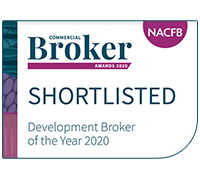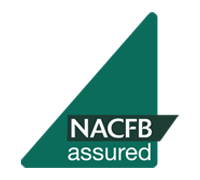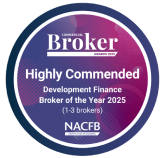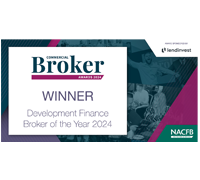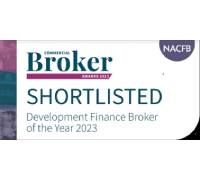Apply Online
The Definitive Guide to Property Development Finance
What is Property Development Finance?
Property Development Finance is a type of loan used to fund new development plans for properties or major renovations. Typical uses for the funding include the construction of new housing estates or converting older buildings into premium apartments and luxury offices.
Much like a traditional mortgage, Property Development Finance is secured against a property or development site – meaning the amount you can borrow will depend on the value of your site.
Unlike a traditional mortgage, however, property development loans are short-term (typically between 6 and 18 months) and are generally used only to fund the build or conversion of the property.
Property development funding
Most property developers make use of loans to fund their projects, making Property Development Finance a popular solution. These loans provide a lump sum towards the purchase of property or land, followed by a specific amount at a later date to cover the Costs to Complete; that is, the build costs and professional fees.
The funds for Costs to Complete are made available in tranches (instalments) and arrears. This means that, in some instances, developers will need to fund the onset of the works out of their own finances and be reimbursed by a lender at a pre-agreed date.
What is Property Development Finance used for?
Property Development Finance is most often used for residential housing schemes. These schemes include Private Rented Sector (PRS) schemes and affordable housing.
Loans can also be taken out by developers to bankroll commercial and mixed-use properties. While these projects can range in size, larger-scale endeavours are the most commonplace.
How much can I borrow?
| Lender | Loan amount |
| Senior Debt facility | Up to 65% of the Gross Development Value (GDV) or 80% of the total project costs – whichever is lower. |
| Stretched Senior Debt facility | Up to 75% of the GDV or 90% of the total project costs – whichever is lower. |
| Mezzanine loan facility | Can provide the same rates as a Senior Debt facility, but on a second charge basis behind a Senior Debt Facility |
| Joint Venture facility | Up to 100% of total project costs |
What information do I need to provide?
Before seeking Property Development Finance, it’s crucial that you finalise all planning concerns and have secured all relevant documentation to show your lender. Here’s a list of information that may be required before securing your loan:
- A financial appraisal
- Detailed build costs
- Cash-flow
- Planning consent (with any accompanying plans/drawings)
- Details of any Section 106 or Community Infrastructure Levy (CIL)
- Details of the procurement method i.e. will you be using contractors or your own team?
- Details of the professional team (architect, contractor, structural engineer etc)
- Schedule of the proposed accommodation and a breakdown of the proposed selling price to calculate your total Gross Development Value
- Developer CVs
Property Development Finance lending criteria
Although it’s often easier to secure Property Development Finance with a proven track record of successful projects, it’s still possible for first-time property developers to get a loan if they meet the other criteria.
To make sure you have the best chance of receiving property development funding, we’ve listed the lending criteria that brokers and lenders are looking for:
- Detailed planning consent needs to be granted
- Development experience for larger projects
- Fixed-price contracts with main contractors are preferred, but not always necessary
- Most lenders do not expect pre-sales to be in place
- The cheapest lenders will require a clean and clear credit profile; however, some lenders may still consider you for a loan if you have adverse credit
- A valuer will be instructed to comment on the current site value, the proposed GDV and appropriate market commentary
- A monitoring surveyor or quantity surveyor will be appointed by the lender to audit the proposed build costs, to monitor progress on-site and to asses drawdown requests
- Drawdowns that are in line with the build programme and cash-flow, to be authorised by the lenders monitoring surveyor
Repayments
Once you’ve completed production on your developments, your lender will take the full net sales receipt from each sale until they have been fully repaid. Alternatively, you could refinance once all the properties have been built.
The interest accrued within the loan period will be added to the final bill along with the lender’s agreement fee. Other fees including a valuation fee, Monitoring Surveyor’s Report (if required) and lender’s legal fees will be separate repayments that will need to be covered by the development.
How long will I need to wait?
Provided we’ve been supplied with sufficient information from a developer, we can usually get a Heads of Terms or Decision in Principle within 24 hours. A formal Offer of Finance, subject to valuation, can then follow quite quickly after further due diligence by the lender and possibly a site meeting.
For an application, it typically takes between 6 and 8 weeks from the point of accepting the lender’s Heads of Terms or Decision of Principle. There are some lenders who can act much more quickly, but it’s often subject to the speed with which the borrower’s solicitor (and vendor’s solicitor) is able to act.
Choosing a reliable specialist
As the UK’s leading development finance and bridging loan specialists, our experts at Positive Commercial Finance can help you find the best financing solution for you and your business. If you have any questions or would like to learn more about bridging loans, don’t hesitate to get in touch.

Product Types
Quick Enquiry

